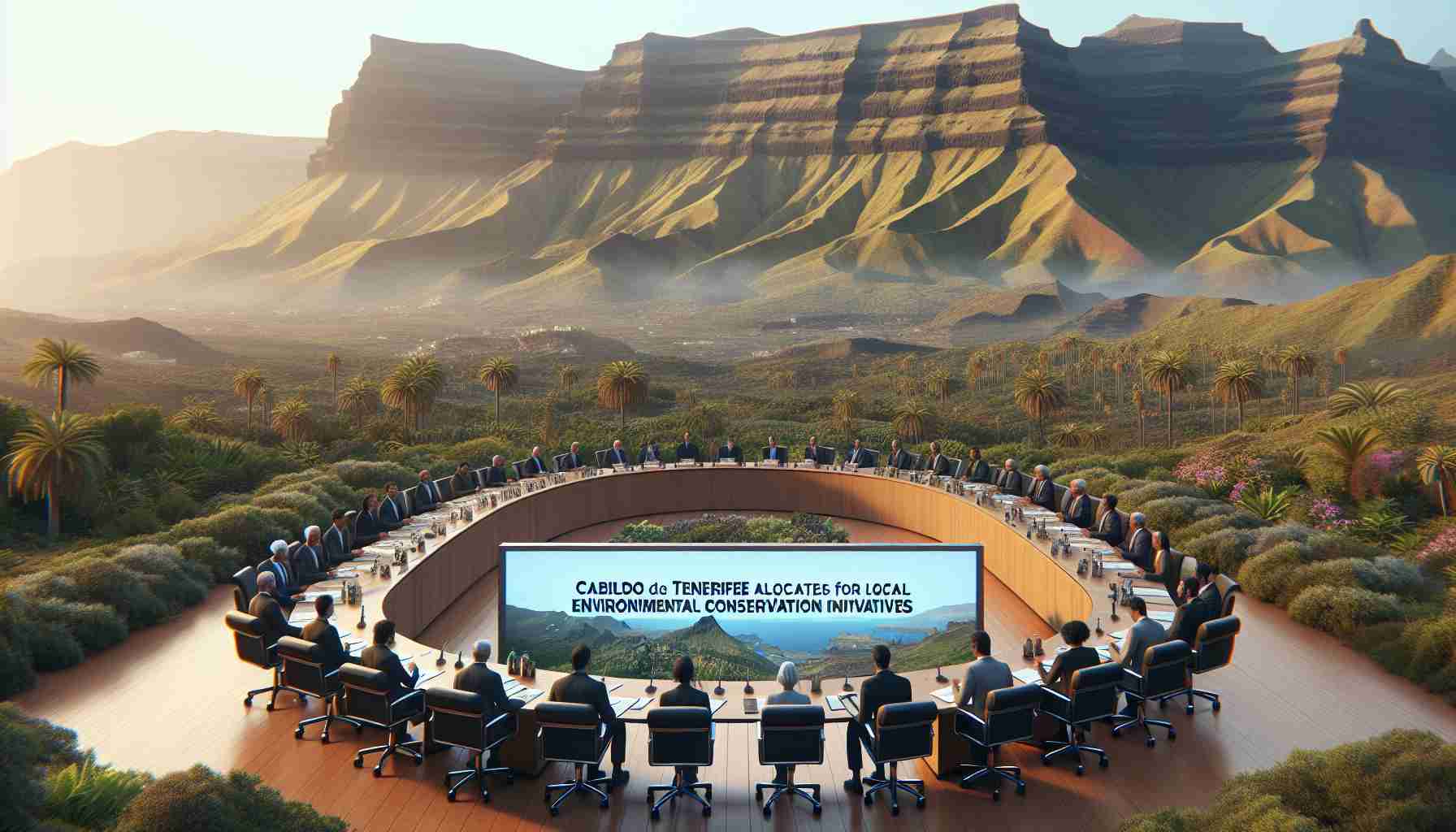
Cabildo de Tenerife Allocates Funds for Local Environmental Conservation Initiatives
In a recent development, the Cabildo de Tenerife has decided to adjust its budget to support environmental conservation projects in the region. This decision comes in light of the growing concern for the preservation of Tenerife’s natural beauty and resources.
The initiative aims to fund projects focused on reforestation, waste management, and the protection of endangered species. By allocating resources to these critical areas, the Cabildo de Tenerife is taking proactive steps to ensure a sustainable future for the island and its inhabitants.
This move underscores the commitment of local authorities to prioritize environmental protection and sustainable development. It reflects a broader shift towards a more eco-conscious approach to governance and decision-making.
Through this initiative, the Cabildo de Tenerife is demonstrating its dedication to fostering a harmonious relationship between humans and nature. By investing in environmental conservation efforts, the local government is not only safeguarding Tenerife’s natural heritage but also promoting responsible stewardship among its residents.
Overall, this reallocation of funds signals a positive direction for Tenerife towards a more environmentally sustainable and ecologically responsible future. It sets a precedent for other regions to follow suit and prioritize the protection of our planet for the benefit of current and future generations.
The Cabildo de Tenerife’s commitment to environmental conservation has sparked important questions and raised key challenges in the implementation of local conservation initiatives:
1. How will the allocated funds be distributed among different environmental projects?
Answer: The distribution of funds will likely be based on the specific needs and priorities identified in each project proposal. Transparency in the allocation process is crucial to ensure fairness and effectiveness.
2. What measures are in place to monitor and evaluate the impact of the funded projects?
Answer: Monitoring and evaluation mechanisms are essential to assess the success of conservation initiatives. Regular reporting, data collection, and stakeholder engagement can help track progress and adjust strategies as needed.
3. How will local communities be involved in the planning and implementation of environmental projects?
Answer: Community engagement is vital for the long-term success of conservation efforts. Involving residents in decision-making processes, education programs, and sustainable practices can enhance local ownership and support.
Key challenges and controversies associated with the topic:
One key challenge is balancing economic development with environmental conservation priorities. Local businesses and industries may raise concerns about potential impacts on their operations and profitability. Finding a middle ground that promotes sustainability while supporting economic growth will be crucial.
Another challenge is ensuring the long-term viability of conservation projects beyond the initial funding period. Securing sustainable financing sources and building capacity within local organizations are essential for the continued success of environmental initiatives.
Advantages of the Cabildo de Tenerife’s environmental conservation initiatives:
– Preservation of biodiversity and ecosystems
– Mitigation of climate change effects
– Promotion of eco-tourism and sustainable development
– Enhancement of quality of life for residents
– Positive reputation and attractiveness for investors and visitors
Disadvantages of the Cabildo de Tenerife’s environmental conservation initiatives:
– Potential conflicts with existing land use practices
– Resistance from stakeholders with conflicting interests
– Challenges in achieving consensus on conservation priorities
– Costs associated with project implementation and maintenance
– Uncertainty about the long-term impact and sustainability of initiatives
For more information on environmental conservation efforts in Tenerife, visit www.tenerife.es.